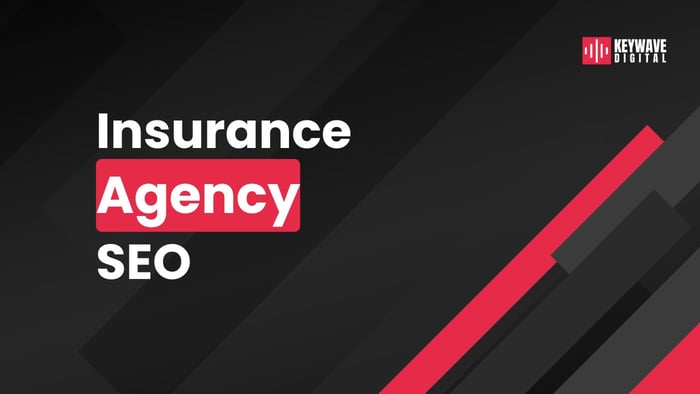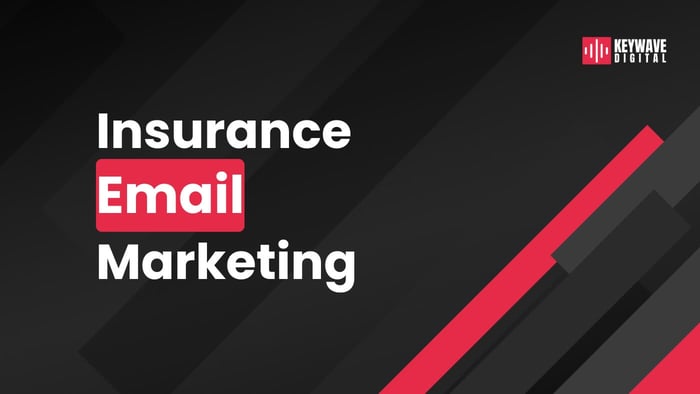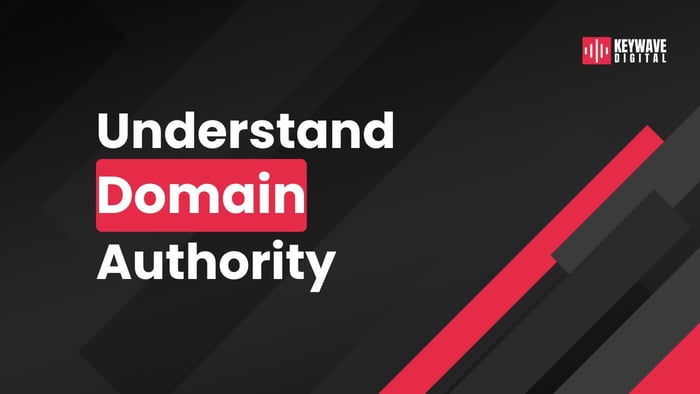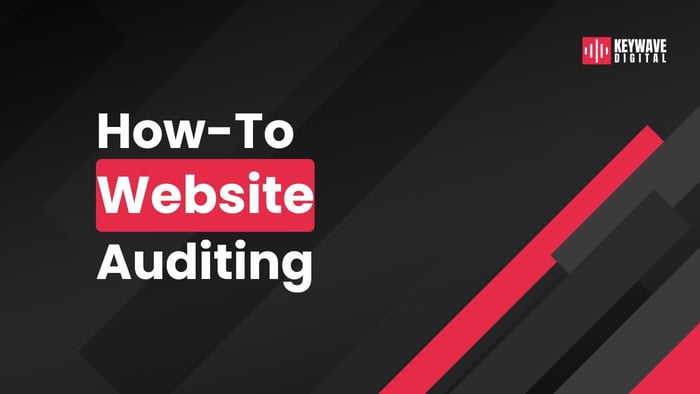Mastering SEO for insurance agencies can seem like a daunting task.
When it's time to enhance online visibility and reach more potential clients organically, their #1 challenge is...
Navigating the complex world of SEO.
SEO for insurance agencies is more than just blogging. Knowing how to optimize SEO is what separates an average insurance agency from a market leader. If you don't know how to leverage effective SEO strategies, reaching your organic growth targets will remain elusive.
But achieving success with SEO isn't easy, folks.

I recently spoke with one frustrated agent who despite investing in a website redesign and still weren’t showing up on Google’s first page.
Their fear now? They'll never be able to compete effectively online or attract enough leads through organic traffic.
Let's face it.
Without a good online presence and effective SEO strategy, your insurance company won’t stand out amidst the stiff competition on search engines.
Table Of Contents:
- The Importance of SEO for Insurance Agencies
- Understand Search Engines for Effective SEO
- Implement Effective SEO for Insurance Agencies
- Use Google Business Profile for Local SEO
- Utilize Content Marketing in Insurance Agency's SEO Strategy
- Monitor and Update Your SEO Efforts
- FAQs About SEO for Insurance Agencies
- What are some effective SEO strategies for insurance agencies?
- Does SEO for insurance agents work?
- What are the key metrics to track in local SEO performance?
- How to look for target keywords for insurance agencies?
- How to create SEO-friendly insurance content?
- If you don't know where to start, here are various types of content ideas for your insurance website:
- Are backlinks important for SEO success?
- How long does it take to see SEO results for insurance agencies?
- Which is better for insurance agencies: SEO or Paid Ads?
- Is it necessary to hire an SEO agency for insurance agencies?
- Grow Your Insurance Business Today
The Importance of SEO for Insurance Agencies
In the modern digital age, many clients rely on search engines to find local businesses like insurance companies. According to SEO Tribunal, 46% of Google searches are for local businesses. That's why having a strong web presence is more important than ever. If you want to optimize your visibility, your insurance business should prioritize local SEO right from the start.
SEO or Search Engine Optimization can be a game-changer for your insurance agency's digital marketing efforts.
It helps improve visibility on search engines like Google and attracts potential customers looking for insurance solutions without relying on advertising spend.

Did you know?
Almost 70% of people click on one of the first five listings when they look at a search engine results page (SERP). And guess what? A whopping 53% percent of all site traffic comes from organic searches (Source).
So yes. Your position in these rankings matters. Big time.
And this extends beyond just attracting attention to your website. It's about attracting quality leads or people actively searching for life insurance, homeowners' insurance, car insurance, etc.
By optimizing your website using strategic SEO techniques, it's easier for these prospective clients to find YOUR agency when they're ready to buy.
Sound good?
Great.
In our next section, let's dive deeper into understanding how exactly we can achieve effective SEO by understanding how search engines work.
Understand Search Engines for Effective SEO
In a way, search engines are like librarians. These digital librarians are constantly scanning and indexing billions of web pages across the internet. Search engines such as Google, Bing, and Yahoo! provide the most relevant results for users.
SimilarWeb data shows that Google tops the global search engine market share at 90.63% as of June 2023. Coming in second is Bing at 3.23%, followed by Yahoo! at 3.17%. The South Korean online platform called Naver comes in fourth at 0.48%, DuckDuckGo at 0.35%, and other search engines at 2.09%.
Knowing how these search engines function can jumpstart your insurance company's SEO efforts. Once you understand how search engines operate, it's easier to implement optimization techniques. You can start optimizing both on-page and off-page features and target the right keywords.
The Role of Keywords in Search Engine Optimization
To understand their language, we need to dive into keyword research. This involves identifying and analyzing terms people enter into search engines.
Keyword research tools can help you identify relevant keywords that potential customers use when searching for insurance products and services online.
But why does this matter?
You'll rank higher on search results when you incorporate these terms naturally into your website content and meta tags. But remember: effective keyword usage isn't just stuffing as many words as possible. That might have worked back in 2005 but not anymore.
Today's sophisticated algorithms favor high-quality content that provides real value to users. You need to understand user intent and know what solutions people seek when they type search terms into Google or Bing. When you know what your audience is searching for, you can focus your content around those topics.
Just keep your content keyword-optimized and structured with appropriate headings and subheadings.
Keyword research is only one stage of a successful SEO campaign. Aspects like off-page SEO techniques and technical elements are waiting for exploration too, so let's explore them one by one.
Implement Effective SEO for Insurance Agencies
Now that you know the importance of SEO for insurance agencies, it's time to devise a solid strategy.
To boost your online presence and widen your consumer base, you need a long-term game plan. SEO is a marathon, not a sprint. It requires ongoing effort and commitment to achieve optimal results.
Your agency should have a comprehensive SEO strategy that covers various aspects, including on-page SEO, off-page SEO, technical SEO, content promotion, and optimization for local search.
Optimize Content Using On-Page SEO
On-page SEO is the practice of optimizing web page content for search engines and users. Common on-page SEO tips and practices include optimizing every web page, adding keywords to your meta tags, and building a good internal link structure.
Focusing on your on-page SEO is a good place to start when working on your strategy.
You can start exploring keyword research tools like Ahrefs Keyword Generator. This will help identify relevant keywords related to renters or property insurance that can improve your visibility in search engine results pages (SERPs).
Next, optimize web page elements such as your content, meta descriptions, and title tags with your target keywords. Search engines use keywords and on-page SEO elements to check whether a page is relevant and useful.
Simply put, the essence of on-page SEO is making your web pages more search engine-friendly and user-friendly.
Leverage Off-Page SEO Techniques
Off-page SEO isn't about what happens on your website; it's about how others perceive it.
One way to enhance this perception? Link building.
This involves acquiring backlinks from other websites to your own. The more high-quality websites linking to your site, the more search engines recognize you as trustworthy.
Ahrefs offers insights into who links back to your insurance agency's website. This is one of the best tools for backlink research and analysis.
You could also use Help a Reporter Out (HARO). It helps connect journalists looking for expert advice with those willing to provide it — like savvy independent insurance agents.
Another option is through social media platforms where engaging conversations around insurance happen daily. You can use social media as a free avenue for sharing content about your insurance products.
With off-page SEO, you boost your online visibility and build relationships within the insurance industry.
Remember: Your reputation precedes you.
Follow Technical SEO Best Practices
The tech side matters too.
All your SEO efforts will be in vain when Google can't crawl your pages.
Make it a habit to audit your site's backend structure and fix all technical issues.
Technical SEO is all about improving the technical aspects of your website for the crawling and indexing phase. Website performance greatly enhances user experience, which is a factor Google considers when ranking sites.
With the increasing use of mobile devices, search engines prioritize mobile-friendly websites. A mobile-optimized web design improves user experience and reduces bounce rate.
Site speed optimization is crucial for SEO because faster-loading websites provide better user experiences. Loading speed keeps your users from bouncing away impatiently. After all, nobody likes a slow website.
Structured data aids search engine bots in understanding the context behind words. This way, they know when and where to rank your site higher up the SERP ladder.
Lastly, sitemap cleanup makes sure only updated information reaches prospective customers. An error-free XML sitemap helps search engines understand the hierarchy of your website's content.
Use Google Business Profile for Local SEO

In the world of insurance solutions and local search results, your Google Business Profile (GBP) is a must. Optimizing your GBP listing can significantly enhance your insurance agency's SEO efforts. Since it’s embedded right into Google’s search engine, you can leverage it for higher search rankings.
When prospects search for insurance in your local area, your well-optimized listing will appear prominently. Being visible in the local search results will increase your chances to sell insurance. It also helps insurance agents build a brand in their local market.
Don't fret if you haven't optimized your business listings because it's pretty straightforward.
Tips to Optimize Your Insurance Company's Google Business Listing
- Create a comprehensive profile: Add all relevant details about your company including address, hours of operation, and services offered. This helps people get an overview without even visiting your website. Plus, it boosts visibility on search engines too.
- Maintain consistency: To improve credibility and trustworthiness among prospective clients, make sure information across different platforms remains consistent. Remember the acronym "NAP." Your key business information — name, address, and phone number — should stay the same across all business listings.
- Gather reviews: The power of positive online reviews cannot be overstated in boosting local presence. A good number of positive reviews enhances reputation and improves ranking in local searches. To build a stronger brand reputation, encourage your satisfied customers to leave feedback.
- Add high-quality photos: Showcase what makes you unique through images; this increases engagement rates which positively impacts rankings.
Utilize Content Marketing in Insurance Agency's SEO Strategy
Content is king, and it reigns supreme in the world of insurance agency SEO.
Your potential clients are searching for answers to their questions about every type of insurance product.
You need a content strategy that provides these answers and aligns with your overall SEO process.
Create High-Quality Content
To draw in potential customers, you must generate content of top quality that resonates with them. Your content should answer the prospects' questions and mirror their search terms.
This means understanding what they're looking for and providing valuable information on those topics. If you're an independent agent selling insurance in a local market, try creating location-specific content on service pages and blog posts.
Focus On Your Audience's Needs
Your audience needs help navigating the complex world of insurance products.
In response, your content should explain terms clearly and offer helpful advice based on different scenarios. From blogs to infographics, your website should answer your target audience's questions and addresses their pain points.
Drawing Organic Traffic To Your Website With Quality Material
High-quality and relevant content is crucial for SEO success.
By delivering engaging blog posts or informative articles related to insurance, you can generate organic traffic to your site. Quality content attracts initial visitors, keeps them engaged, and nurtures them into a conversion.
Monitor and Update Your SEO Efforts
To ensure your insurance agency's SEO efforts are paying off, it is crucial to keep an eye on them continuously.
Why?
SEO is not a one-time task but a long, ongoing process. As search engine algorithms change frequently, you need to closely monitor your SEO campaign.
You can think of it like this: An effective SEO strategy is similar to getting in shape at the gym.
It is a long-term effort that rewards patience and consistency. To achieve your goals, you need months of consistency and hard work.
The Importance of Tracking Website Performance
By monitoring your website performance, you can acquire valuable insights into the success of your SEO tactics. For instance, it offers a wealth of information about where your traffic comes from and which pages attract the most visitors.
Analyzing Traffic Source
Google Analytics is a tool necessary for website owners like you. This tool allows you to analyze whether potential customers find you through organic searches or other channels like social media or direct visits. Whether you need insights about organic searches or referral links, Google Analytics is a powerful web analytics service to ulitize.
Finding The Right Keyword Ranking Tool For You
A keyword ranking tracking tool such as SEMrush's Position Tracking or Mangools KWFinder helps monitor how effectively targeted keywords perform over time in search rankings. This data guides adjustments needed for improved visibility.
Making Adjustments Based On Data Insights
If certain keywords aren't performing well or if there's been a drop in web page views due to algorithm changes, then it might be time for some tweaks.
FAQs About SEO for Insurance Agencies

What are some effective SEO strategies for insurance agencies?
Insurance agencies can conduct keyword research, optimize meta tags, and create high-quality content to boost their online presence within the insurance industry. We recommend creating blog posts that cover insurance topics and industry trends.
Does SEO for insurance agents work?
SEO works across all industries, including the insurance sector.
With effective SEO strategies, your insurance business can appear at the top of the search results. Higher rankings mean greater chances to convert these prospects into customers and sell insurance policies.
What are the key metrics to track in local SEO performance?
When monitoring local SEO performance, several key metrics provide valuable insights:
- Local Search Rankings.
- Organic Traffic.
- Online Reviews.
- Consistency of Name, Address, and Phone Number (NAP).
- Click-Through Rate (CTR).
- Social Media Engagement.
How to look for target keywords for insurance agencies?
Not everyone will type "insurance agents" into search engines.
Some people search for more specific services such as health insurance or annuities, while others will seek answers to their insurance-related questions.
If you don't target the best keywords, your SEO strategy won't deliver the results you would like.
Learning how to do keyword research is complicated at first.
But you can start by targeting a mix of generic and long-tail keywords related to the products and services you offer. Tools like Google Keyword Planner, SEMrush, and Ahrefs can uncover relevant keywords and gain insights into the search volume and competition
After the keyword research, regularly monitor their performance and refine based on data-driven insights.
Another way to get insights into what people are searching for is the "People Also Ask" section. This Google SERP feature helps you discover relevant search terms and topics related to your initial query. You can utilize this section effectively by carefully going through the questions and discover various angles of your main topic. Here is what it looks like:

How to create SEO-friendly insurance content?
The best content for an insurance agency depends on the goals and specific niche.
Try to think like your target audience and come up with topics to write about. Your insurance content should resonate with them without any industry jargon. Instead of using complex terms, opt for clear and easy-to-understand language for your audience.
If you don't know where to start, here are various types of content ideas for your insurance website:
- Informative blogs.
- Case studies from clients.
- Insurance calculator and tools.
- Local events and activities.
- Guides on coverage options and claims processes.
- Instructional videos.
- FAQs pages.
Are backlinks important for SEO success?
Search algorithms use backlinks to determine whether your website has authority. Backlinks serve as a vote of confidence from other websites, which are the strongest ranking signals in Google's search algorithm.
A website with many high-quality backlinks will rank higher than its competitor.
To attain long-term SEO success, your insurance agency should focus on building a diverse and solid backlink profile.
How long does it take to see SEO results for insurance agencies?
Keep in mind that SEO results are not instant. Rather than a one-and-done project, it's an ongoing process of optimizing your website and implementing best practices.
The timeframe to see SEO results for insurance agencies is between 4-12 months. When done properly, your SEO efforts will see noticeable improvements within a few months.
Once your website's organic traffic ticks upward, qualified leads and conversions will follow.
For more competitive keywords and competitive markets, it can take a longer time.
Which is better for insurance agencies: SEO or Paid Ads?
Your website can benefit from either SEO or pay-per-click (PPC).
Neither is worse or better than the other.
Determining whether SEO or paid ads are better for your insurance agency depends on your budget and preference.
In a nutshell: SEO focuses on improving organic search rankings, while PPC ads let your website appear in search results.
If your goal is to attract visitors in the short term, you might choose to focus on paid ads. But if you want to boost your online presence in the long run without needing to rely on paid ad spend, SEO is the answer.
Both SEO and PPC can be combined for a well-rounded, solid digital marketing strategy.
Is it necessary to hire an SEO agency for insurance agencies?
Hiring an SEO agency provides several advantages for insurance professionals. They have the knowledge and skills to have full control over your SEO strategy.
SEO experts start with comprehensive site audits to identify issues and opportunities for improvement.
An SEO agency can perform in-depth keyword research and optimize your website's structure and content.
In terms of off-page SEO, they can gain inbound links and build authority in the insurance niche.
Ultimately, they can monitor and analyze performance metrics and drive your insurance agency's success in the digital landscape.
If your insurance agency lacks in-house expertise in these areas, hiring an SEO agency can be beneficial so your insurance agents and staff can focus on their core responsibilities.
Grow Your Insurance Business Today
While having a solid online presence is undervalued in the insurance industry, you should treat SEO as an absolute necessity for investing in the long-term value of your brand.
The importance of SEO in attracting potential customers and improving search engine rankings cannot be overstated.
In this guide, we explored various strategies like keyword research,on-page, off-page, technical SEO, content marketing, and local SEO that can supercharge your online presence.
And remember: Continuous monitoring and adjustment are key to keeping up with changing algorithms.
Can't keep up with Google's ever-changing algorithm?
Why not partner with Keywave Digital?
We help independent agencies like yours acquire more clients using effective marketing strategies, tools, and conversion-optimized websites designed specifically for high performance.
Let us show you how to unlock the potential of SEO for insurance agencies.
Ready to elevate your insurance agency's online presence and connect with more local clients? Start optimizing your SEO strategy today.










